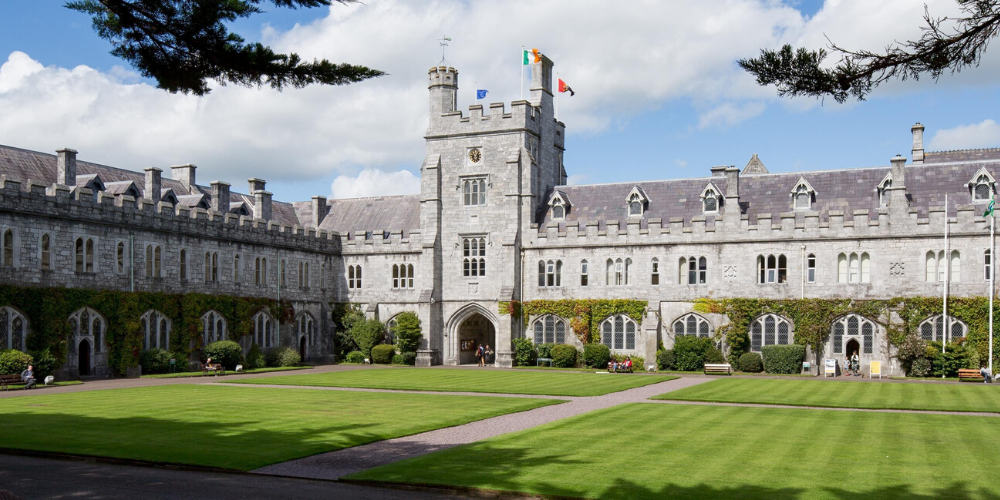
Easy Energy Performance Contracting for Irish Universities
24th March 2025
As a big energy user in Ireland, EasyPro provides Energy Performance Contracting (EPC) for Irish universities. The below blogpost by EasyPro coordinator Dr Luciano De Tommasi from the IERC – International Energy Research Centre explains the benefits of EPCs and why Irish universities need the EasyPro procurement service specifically.
What is Energy Procurement Contracting?
Energy Performance Contracting (EPC) is an innovative contractual arrangement between the beneficiary and the provider (usually an Energy Service Company) of an energy efficiency improvement measure that enables the investments in that measure to be paid in relation to a contractually agreed level of energy efficiency improvement. Energy Service Companies (ESCOs) offer a comprehensive service that begins with the identification and evaluation of energy-saving opportunities for the customer. This is followed by the recommendation of a package of energy efficiency improvements to be installed at the customer’s premises. The ESCOs provide a wide range of services such as building retrofit design, project financing or assistance for arranging financing, procurement, engineering, construction and installation, training, and maintenance. The customer and the ESCO will either share the utility bills’ savings according to previously agreed proportions (called a ‘shared savings model’) or will guarantee a certain level of savings to the customer (called a ‘guaranteed savings model’). With the guaranteed savings model, if at any time the energy savings fall short of the guaranteed threshold, the ESCO will pay the difference to its customer.

With the EPC model, the ESCO receives a remuneration that is tied to the actual performances achieved. As such, the EPC is a driver for the ESCOs to design, maintain and operate energy efficiency measures at their best performances. Once an EPC ends and the ESCO has recovered its costs and made a reasonable profit, the ownership of the energy-saving equipment and other improvements can be transferred to the customer without additional charges.
Advantages of Energy Procurement Contracting
An alternative EPC model involves the customer bearing the costs (in part or entirely) for the installation of the package of energy efficiency improvement measures. With such a model, the ESCO guarantees a level of energy cost savings, which are sufficient to cover at least the amortisation of the capital investment and generate a profit for the ESCO. Compared to the traditional design-bid-build project delivery model (also known as design-tender), the EPC model reduces the performance risk for the building owner, which is the risk associated with uncertainty about the operational performance of the installed energy efficiency measures.

Furthermore, the EPC model protects the client from the risk of a possible increase in the cost of the works and the technology risks associated with the integration of the new equipment and measures within the existing building systems. Another advantage for the customer provided by the EPC model is that the ESCO manages all relationships with finance providers, energy suppliers, mechanical and electrical engineering consultants, technology suppliers, and installers. The client only needs to manage a single contract (the EPC) with a single supplier (the ESCO). This is known as a ‘one-stop shop’ approach.
Challenges and EasyPro’s solutions
Despite the multiple benefits of the EPC model, some challenges need to be addressed to increase its market penetration. The first issue is the complexity of the procurement process, which includes the competitive dialogue between ESCOs and tendering process. This requires knowledge and experience about EPCs and/or resources that are not available in the Buildings and Estates Offices of many public and private sectors’ organisations. Another issue is difficulty accessing financing for many ESCOs (in particular small- or medium-sized ESCOs), which do not have sufficient financial strength to obtain bank finance. EasyPro will tackle these challenges by developing an innovative EPC facilitation service and implementing it in four Irish Universities. The EasyPro facilitation service will provide the four Universities with the necessary assistance to define the EPC projects to be tendered, preselect ESCOs that have the requirements to participate in tenders, run the tenders and select the winner contractors. Furthermore, EasyPro is analysing the project financing options available for the Universities in Ireland and will provide a matchmaking service between grants/investors and projects planned at the Irish Universities. The financing options that EasyPro are currently considering and analysing are a mix of private and public funding, such as low interest bank loans and the grants made available by the Sustainable Energy Authority of Ireland.